In years past, children spent most of their time out of school engaging in outdoor activities with their friends, such as playing ball, riding their bikes, fishing, and getting into typical childhood mischief. However, studies have shown over the last few decades that there has been a steady swing away from outdoor-related recreation to spending more and more time in front of a computer screen. Psychologists believe the shift away from outdoor activity is due chiefly to the advancements in technology, with things like video games, online social media platforms, and streaming services like Netflix now occupying most of kid’s time.
A 1980s Harvard University study by biologist Edward Wilson proposed that humans are instinctively drawn towards their natural surroundings. Unlike children who do not, kids who spend quality time in nature are happier, more attentive, have increased cognitive capacity, and are less anxious overall. However, many parents disagree with that assessment because their children want to spend so much time indoors watching TV, surfing the net, and playing video games. Nonetheless, the growing concern over children not spending enough time outdoors has been named “Nature Deficit Disorder”.
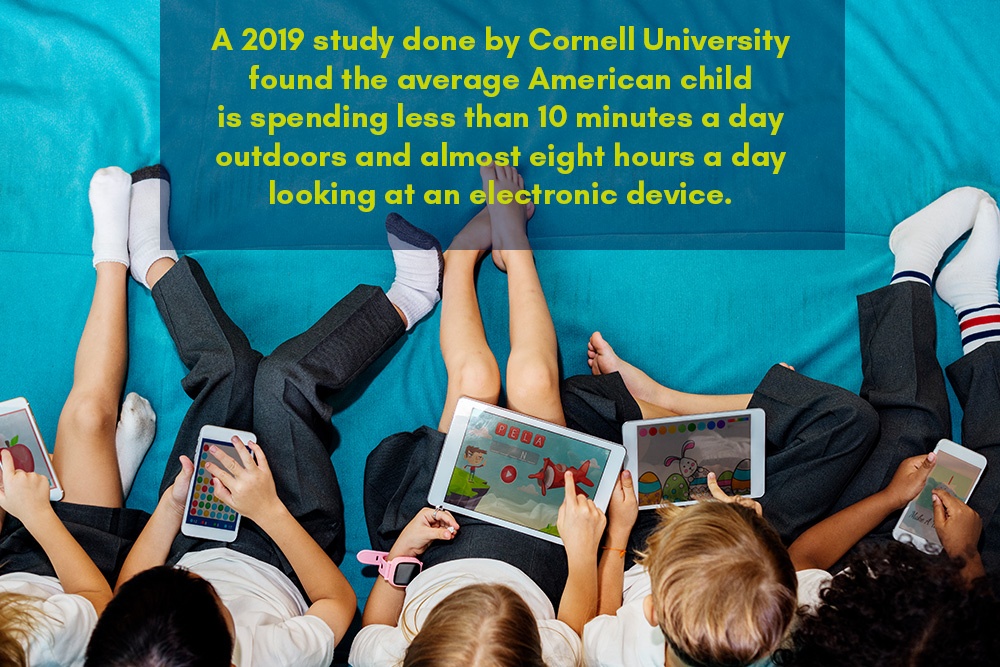
A 2019 study done by Cornell University found the average American child is spending less than 10 minutes a day outdoors and almost eight hours a day looking at an electronic device. In his book, “Saving Our Children From Nature-Deficit Disorder”, Richard Louv relates the story of a child who reported he liked playing indoors better because there are more electrical outlets. In an attempt to address this continually increasing concern, here is a summary of both the physical and mental benefits of why kids should spend time in nature:
1) Mental Health
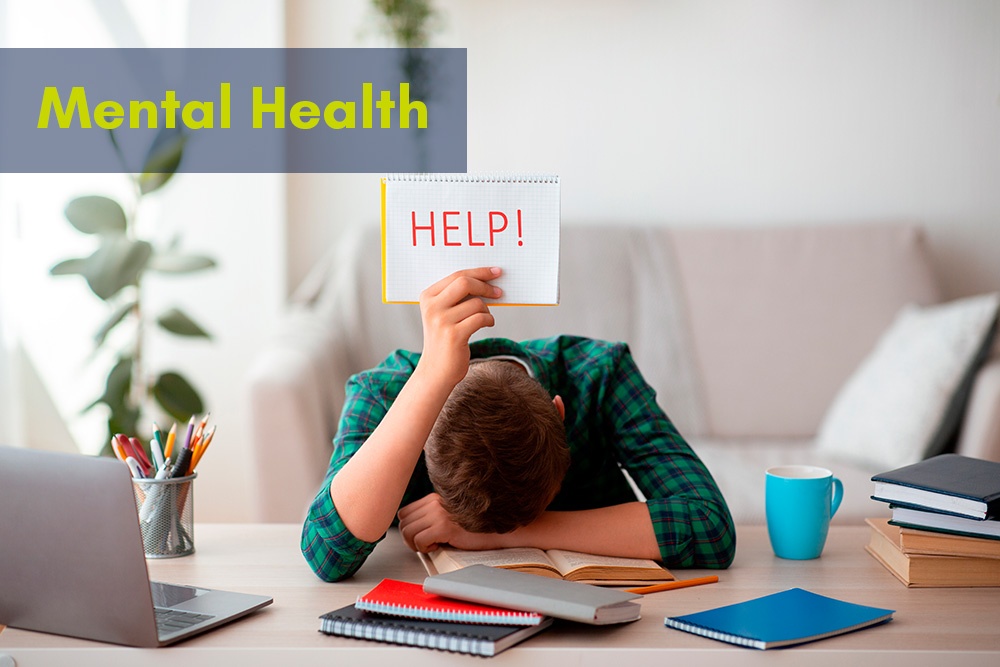
• Reduces Emotional Issues
Researchers have tracked the correlation between anxiety and depression among kids and the amount of time they spend outdoors. Studies have found that the decline in children’s amount of time outdoors is directly related to a decrease in their feeling of being in control. Conversely, both these attributes increase when children begin spending more time outdoors.
• Builds Confidence and Promotes Creativity

Being outdoors builds confidence because the type of play kids engage in nature is typically less structured than virtually all types of indoor play, and there are almost limitless ways to interact with nature. These include simple things like swimming in a lake, hiking in the woods, or riding a bicycle. Unstructured play requires kids to think more abstractly, plan their own activities and find inventive ways to have fun.
• Teaches Responsibility
One of the hardest lessons for children is that living things will die if not properly cared for. Entrusting a child to care for things like plants and even small animals, like salamanders, tadpoles, and frogs, teaches kids about the living world.
• Reduces Stress and Fatigue
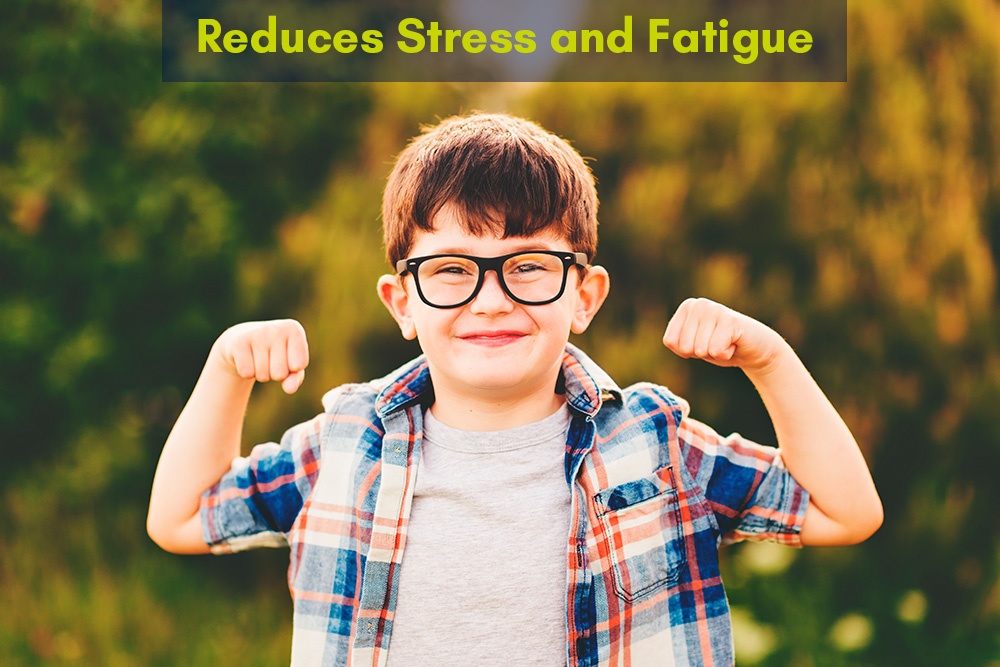
When children are exposed to constant mental stimulation, such as playing video games and watching TV, their brains become exhausted. However, spending time in natural environments requires a much less effortful type of attention that creates feelings of pleasure and reduces fatigue.
2) Physical Health
• Increases Fitness
Most of the ways children interact with nature require them to move around a lot. Hiking in the woods, riding a bike, playing soccer or baseball, and climbing trees all require a good amount of physical exertion. Not only does the exercise make them more fit, but they also become more focused and have a reduced risk of ADHD.
• Increases Strength

Going hand in hand with fitness, outdoor play builds strong muscles and bones. When children don’t get enough exercise, their muscles weaken, but running around the soccer field or basketball court, peddling their bike, or just walking strengthens muscles and bones.
• Improves Coordination
Kids spend so much time off of their feet sitting in school, doing homework, and then sitting in front of a computer or playing video games they lose the coordination that comes from being physically active. This is partly to muscle atrophy and partly to a phenomenon referred to as muscle memory, the latter of which is the strengthening of the neuromuscular connections between the brain and muscles through repetitive motion.
Amount of Time Outdoors
As with exercise, the benefits of time spent outdoors are cumulative, and this means that spending just a few minutes a day outdoors will produce a long-term health benefit. Here is a general breakdown of various amounts of time spent in nature and the benefits it provides:
• Five minutes: Researchers at the University of Plymouth in the United Kingdom discovered that being in a green space for just a few minutes each day gives the brain a chance to reset and helps reduce anxiety levels and decrease the cravings for unhealthy foods.
• 15-20 minutes: Researchers at the University of Exeter found people who average about 20 minutes a day outside were heather and happier than those who did not. Researchers at the University of Alabama found that people who spent 20 minutes in an urban green space had increased happiness and well-being levels, regardless of whether exercise was involved or not.
• One hour: The U.S. Department of Health and Human Services states that children ages six through 17 should ideally get at least 60 minutes of daily physical activity for good mental and physical health.
• Three hours: Pediatric occupational therapist Angela Hanscom believes the target should be for children to be outside for three hours each day ideally. As of 2018, the average child spends an average of 1,000 hours a year in front of some type of electronic device, which translates into approximately three hours a day. The 1000 Hours Outside challenge is getting kids to spend an equivalent time exploring nature to offset that time.
When you may not be sure what the best course of action is, you can be certain one of the single best things you can do for your children is to get them out of the house for a few hours each day. While older children can be left to their own devices, young ones should, of course, be supervised. Additionally, one of the best ways to get your kids outside more is to take them on some type of outdoor adventure. However, as beneficial as it is for their mental and physical well-being, children playing outside are at risk for insect bites and stings.
In addition to being pesky, many insects carry bacterial and viral diseases that are readily transmissible to humans. This includes ticks carrying Lyme disease and Rocky Mountain spotted fever, mosquitoes harboring West Nile and Zika viruses, and River Blindness from black fly bites. Proven Insect Repellent’s range of bug sprays and lotions are suitable for the whole family, and provide excellent, long-lasting protection against ticks, mosquitoes, black flies and other biting insects. Proven is one of the best insect repellents for children as it contains 20% Picaridin, an active ingredient recommended by the CDC as an effective and suitable insect repellent for kids ages 2 and older (according to CDC guidelines). Proven is sold online and in stores at Target, ACE Hardware, Meijer and Tractor Supply. Proven also comes in handy travel-sizes so your kids can always be ready for their next outdoor adventure.
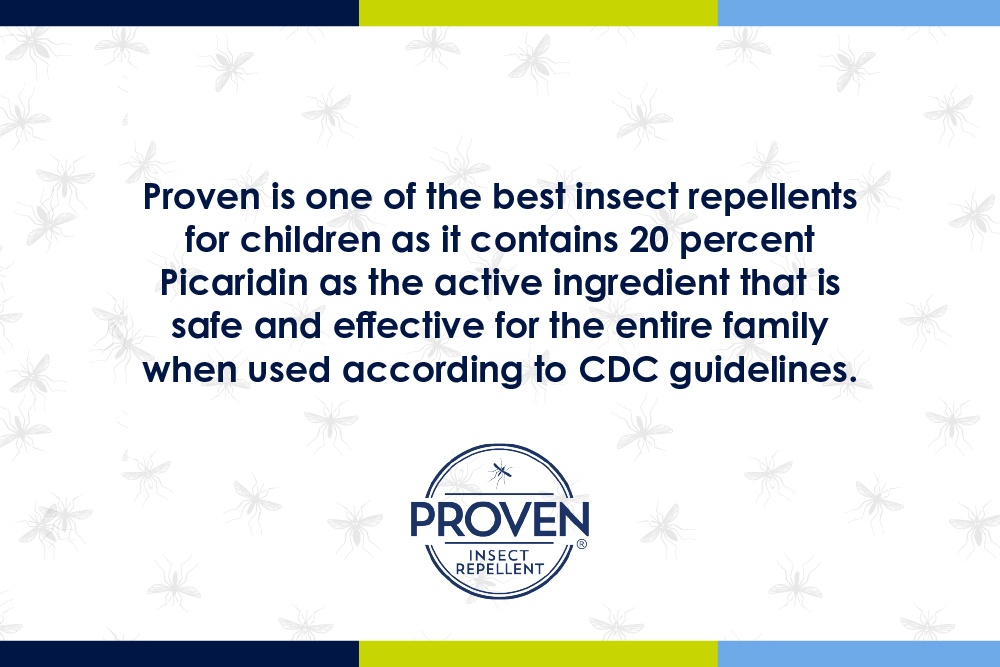

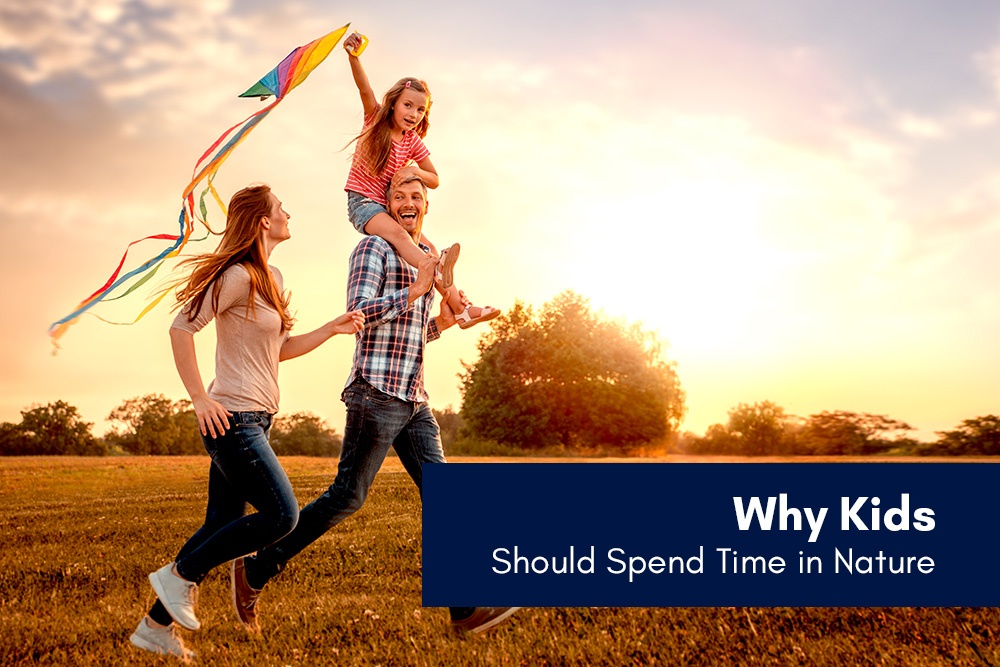
Recent Comments